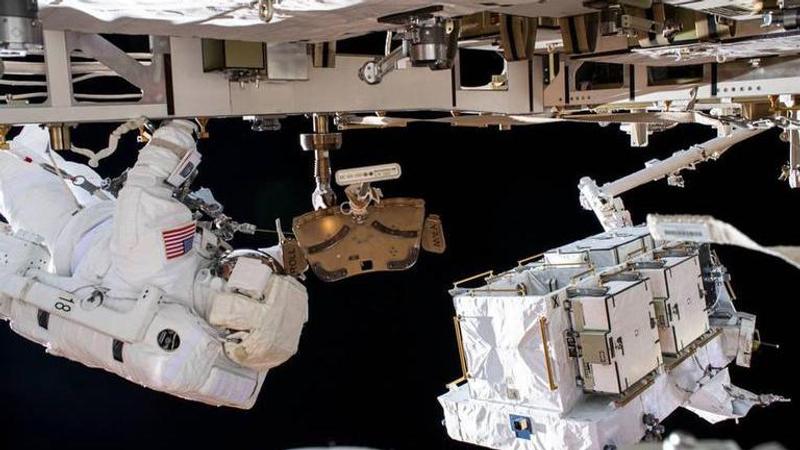Published 17:26 IST, July 14th 2020
NASA to broadcast spacewalks aimed at upgrading power system at ISS
National Aeronautics and space administration (NASA) is all set to broadcast the spacewalks of its astronauts Chris Cassidy and Robert Behnken in July.

National Aeronautics and space administration (NASA) is all set to broadcast the spacewalks of its astronauts Chris Cassidy and Robert Behnken, who would make a final move to upgrade the power system at the ISS later this month. As per NASA, the spacewalks would be conducted on July 16 and July 21 to complete the 3.5 years of efforts to upgrade the batteries at International Space station.
As per a press release on its website, the broadcast would begin at six am EDT on NASA's website ad NASA television Also, the spacewalk would begin at 7.35 am and would continue for seven hours.
“Cassidy and Behnken will replace ageing nickel-hydrogen batteries with new lithium-ion batteries delivered to the station on a Japanese cargo ship in May. The replacements will be on the starboard 6 truss’ 3B power channel," NASA on its website worte.
'New Lithium batteries'
As per the schedule, the astronauts on their first spacewalk would remove the old batteries and replace them with the ‘new lithium-ion’ batteries as well as accompanying hardware. The final battery would be removed from the truss’ power system on July 21, the space agency added. As of now, a total of 12 spacewalks has been made since 2017 to charge the batteries that provide electricity to the station.
The July spacewalk would mark the 300th spacewalk for US astronauts since Ed White first stepped out of his Gemini 4 capsule in1965. These spacewalks would also mark the ninth and tenth for Cassidy and Behnken who would join former astronauts Michael Lopez Alegria and Peggy Whitson with most spacewalks for Americans.
"When the power upgrades are complete, the astronauts will shift gears and remove two lifting fixtures used for ground processing of the station’s solar arrays prior to their launch", NASA revealed.
Image Credits: NASA
Updated 17:26 IST, July 14th 2020



